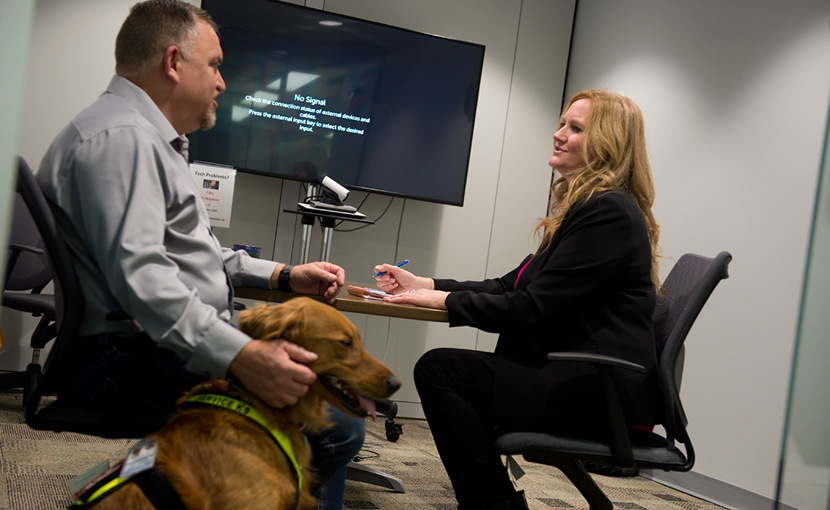

There was an error. Please try again.
This page is already listed in your guide. Please choose a different page to add.
If you’re not experienced at interviews, explaining your strengths can seem like boasting. Meanwhile, questions about your biggest weakness can seem like a trap.
When considering how to answer these questions, keep the big picture in mind. The interviewer’s goal is to see whether you can do the job, whether you’ll fit into the organization and why you want the job. Every question you’re asked will be designed to assess these 3 areas.
Your Strengths
Prepare for your interview by rereading the job description or job posting while focusing on the requirements:
- Think ahead about how your particular qualifications help you meet the requirements. Be prepared to explain them.
- Don’t just list your strengths. To stand out, tell a story and offer examples. Choose a strength that’s needed for the job, and describe a situation you handled that shows how you have used it. The idea is to showcase the positive results of your efforts. For example, if the job requires the ability to find creative solutions, explain how an innovative idea you came up with solved a problem in the past.
Your Weaknesses
First, it should go without saying that you should not mention these unless asked. That said, it’s likely you’ll be asked.
In the old days, the advice was to offer an answer where the weakness could be perceived as a strength, such as, “I’m a bit of a perfectionist.” But most interviewers today will see through this.
Instead, choose a real weakness that is unlikely to cause major problems at this particular job, and add how you’re working to improve it. This second part is key, because it shows you have self-awareness and the motivation to improve. It reassures the interviewer that your weakness is unlikely to cause any issues on the job, and may even make you a better employee.
For example, you could say that sometimes you work so intently that you lose track of time, but you’ve started using a smart phone app that helps keep you on track, and you’ve never missed a deadline.
Skilled interviewers may try to uncover your weaknesses by asking an indirect question like “Tell us about a conflict you had and how you resolved it.” Take a moment to think about the question from the interviewer’s perspective. For example, this interviewer is likely looking for the weakness that caused the original conflict. In this situation, you would try to think of a conflict that you did not create, but did help to resolve.
In Summary
Everything you say in an interview should communicate why you are the right person for the job:
- Be prepared to describe your most important abilities and personal characteristics in terms of results.
- Don’t hesitate to be direct about why the company should hire you. This is not the time to be modest!
- Project a positive attitude, even when discussing your weaknesses.
What would you like to know?
An alis staff member will review your question and respond via email. If it’s something that can help others look for work, explore careers, or succeed on the job, a version of your question and answer may even be added to the site.
Your privacy is important. If your question is published to alis, your identity will remain anonymous. Your email address and any other personally identifiable information will not be posted to the site.
If you require immediate assistance, please call the Alberta Supports Contact Centre at 1-877-644-9992.
